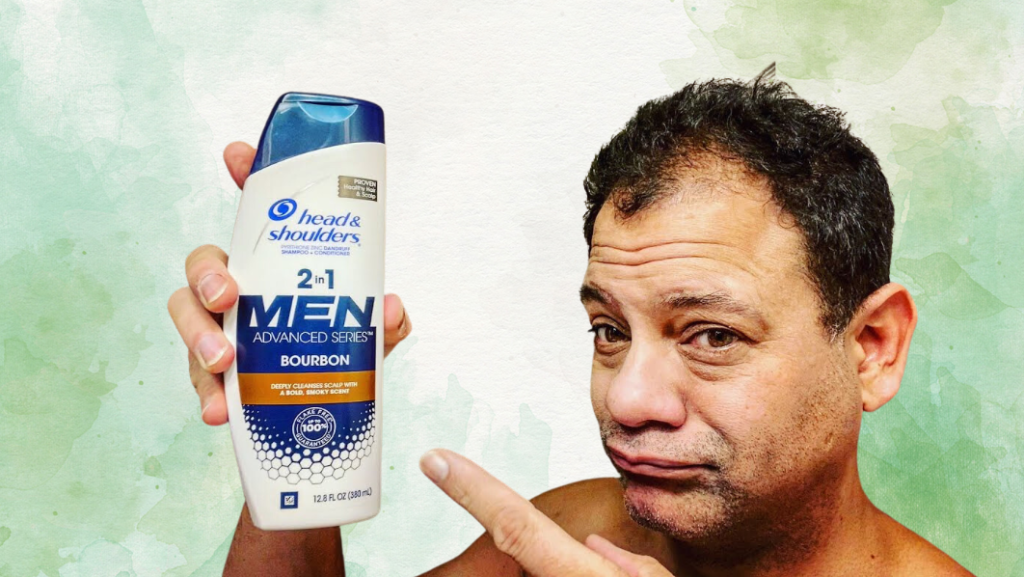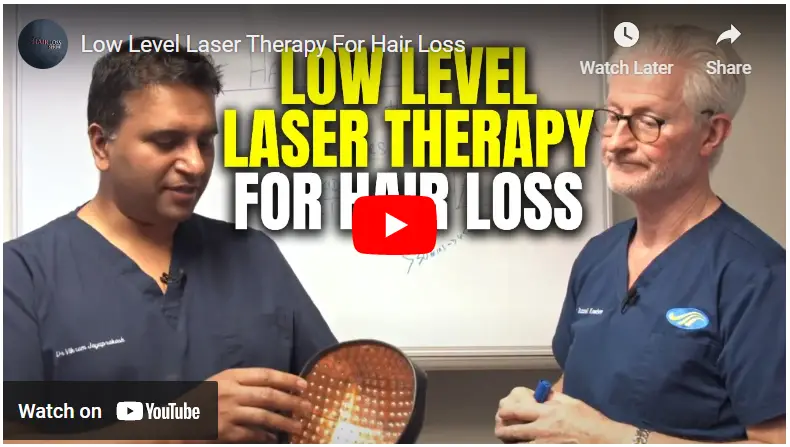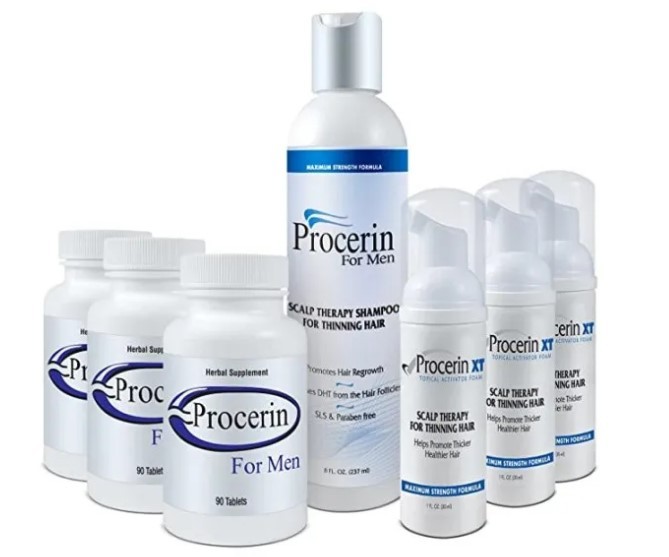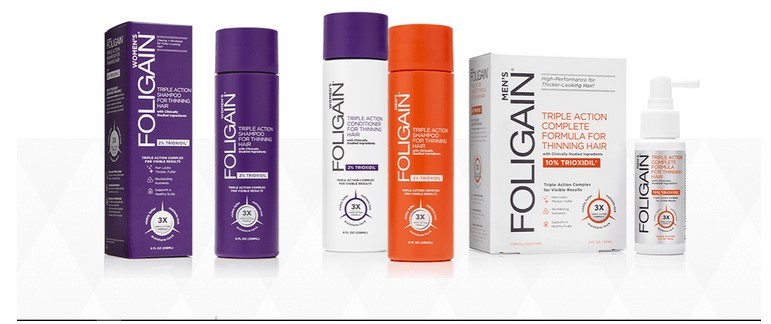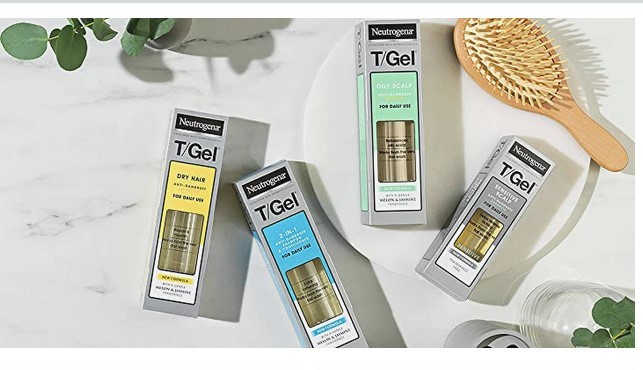Are Head and Shoulders shampoo bad for your hair? As one of the most popular anti-dandruff shampoos on the market, many people wonder whether Head and Shoulders are harmful to their hair. After all, it contains chemicals that have raised concerns among users.
In this blog post, we will delve into the ingredients and formulation of Head and Shoulders, examine its potential effects on hair health and address some frequently asked questions about this widely-used product.
Is Head And Shoulders Bad For Your Hair?
Contrary to popular belief, using Head & Shoulders shampoo is not bad for your hair. Sulfates found in the shampoo have been speculated to be related to hair loss, yet no research has confirmed this correlation. In fact, it has been found that dandruff is a damaging factor for your hair, and Head & Shoulders shampoo can assist in its treatment. To maintain a healthy scalp and hair, using the Head & Shoulders as recommended is recommended.
Understanding Head And Shoulders Shampoo
Head and Shoulders shampoo contains active ingredients such as pyrithione zinc, selenium sulfide, or ketoconazole, which help combat dandruff by slowing down the growth of yeast on your scalp.
Ingredients And Function
The key to understanding the effectiveness of Head and Shoulders shampoo lies in its ingredients and how they function. One primary component is zinc pyrithione, an antifungal and antibacterial agent that helps eliminate dandruff-causing microorganisms on the scalp.
Another major ingredient is a blend of cleansers, specifically sodium lauryl sulfate and sodium laureth sulfate.
Head & Shoulders also include thickening agents like Sodium Chloride and Sodium Xylene Sulfonate to give your hair a fuller appearance while effectively treating dandruff.
Other active ingredients, such as selenium sulfide, contribute to combating stubborn dandruff issues by providing additional anti-fungal properties.
You will like:
Debunking Hair Loss Claims
Over the years, numerous claims have circulated suggesting that Head and Shoulders shampoo may be responsible for hair loss or thinning. However, these allegations lack concrete scientific evidence to support them.
In fact, one of the primary ingredients in Head and Shoulders shampoo is Zinc Pyrithione – an anti-fungal agent known for its dandruff-fighting abilities.
Despite this reality, it’s crucial to remain aware that everyone has different hair types and unique sensitivities to specific products or ingredients. While some people may experience adverse reactions due to an individual chemical sensitivity unrelated to typical use of Head and Shoulders shampoos or conditioners, such occurrences shouldn’t warrant generalized conclusions about the potential risks associated with using their products.
Potential Negative Effects Of Head And Shoulders On Hair
Head and Shoulders may cause dryness, brittleness, scalp irritation, itching, and damage to color-treated hair.
Dryness And Brittleness
One potential negative effect of using Head and Shoulders shampoo is the dryness and brittleness it may cause to your hair. The shampoo’s primary function is to cleanse, which means it effectively removes dirt, oil, and other build-ups on your scalp.
While this can certainly be beneficial for maintaining a clean and healthy scalp environment, the process can inadvertently strip away natural oils necessary for keeping hair hydrated and flexible.
Another factor worth considering is how often you wash your hair using Head and Shoulders shampoo since excessive use might contribute to increased dryness or brittleness.
Scalp Irritation And Itching
Head and Shoulders contain active ingredients like zinc pyrithione, which can help alleviate symptoms of dandruff. However, these ingredients may cause some users to experience scalp irritation and itching.
While most cases are mild, prolonged use or overuse of Head and Shoulders shampoo can lead to dryness and increased sensitivity in the scalp.
Itching is a common symptom associated with many scalp conditions, such as seborrheic dermatitis or psoriasis. When left untreated, these conditions can worsen, leading to greater discomfort for an individual.
It is important not only to treat any existing scalp issues but also to be cautious about what products one uses on their head as they could potentially exacerbate the problem further.
Damage To Color-Treated Hair
Color-treated hair requires gentle care to maintain its vibrancy and shine. Unfortunately, some shampoos can strip the color from your hair, leaving it looking dull and lifeless.
Head & Shoulders is no exception because some of its formulas contain sulfates that can cause fading and damage to color-treated hair over time.
If you have color-treated locks, be sure to read product labels carefully before using any shampoo or conditioner. Look for sulfate-free options that work well with dyed strands without damaging them while still providing an effective dandruff solution like Head & Shoulders Supreme Scalp Moisturizer Shampoo.
Can Head And Shoulders Cause Hair Loss?
Many people wonder if using Head and Shoulders can lead to hair loss, and the answer is, There have been no official reports that suggest using Head & Shoulders causes hair loss; in fact, it has been shown to reduce flakes which could potentially improve the health of the scalp which could lead to stronger strands of hair.
Let’s take a closer look at the connection between dandruff and hair loss and the effects of zinc pyrithione on hair growth.
The Connection Between Dandruff And Hair Loss
Dandruff is a common scalp condition that can cause flaking and itching, among other symptoms. While dandruff itself does not directly cause hair loss, it can lead to hair loss in some cases.
This is because when the scalp becomes inflamed or irritated due to dandruff, it can disrupt the normal growth cycle of hair follicles.
If you are experiencing both dandruff and hair loss, it’s important to treat the underlying dandruff condition first in order to prevent further hair loss. Using an anti-dandruff shampoo like Head and Shoulders can be helpful for managing dandruff symptoms while also promoting healthy hair growth.
The Effects Of Zinc Pyrithione On Hair Growth
Zinc pyrithione is a crucial ingredient in Head & Shoulders shampoo, and it has been shown to promote hair growth. This compound effectively fights the fungus that causes dandruff, which can inhibit healthy hair growth.
Additionally, research shows that zinc pyrithione-based shampoos have been found to be effective in promoting normal hair growth and retention. In one study, participants using a zinc pyrithione-based shampoo experienced an increased number of hairs growing per square centimeter of the scalp compared to those using a placebo.
Safe And Effective Usage Tips For Head And Shoulders Shampoo
To ensure the safe and effective use of Head and Shoulders shampoo, it is recommended to use it only two or three times a week, apply the product on wet hair evenly, avoid using hot water during rinsing, and not exceed the recommended amount for each wash.
Frequency Of Use
Finding the right frequency for shampooing is key to maintaining healthy hair. While some people may wash their hair every day, others can go longer between washes without any negative effects.
Dermatologists and stylists suggest taking into account factors like hair type, texture, and scalp condition when determining how often to use shampoo. For example, those with oily scalps may need to cleanse more frequently than those with dry scalps.
Additionally, using too much shampoo or washing too often can strip the scalp of natural oils, leading to dryness and irritation.
Proper Application
To ensure the best results when using Head & Shoulders shampoo, it’s important to practice proper application techniques. Start by thoroughly wetting your hair before applying a quarter-sized amount of shampoo to your scalp.
Massage the product into your scalp with gentle circular motions for at least one minute, taking care not to use too much pressure or scratch the skin.
It’s essential to avoid getting shampoo in your eyes or mouth and try not to apply too much pressure when rubbing in the product, as this can lead to scalp irritation.
Avoiding Overuse
To prevent any negative effects on hair health, it is essential to avoid overusing Head & Shoulders shampoo. While the product is formulated to treat dandruff and promote a healthy scalp, excessive use may result in dryness and increased brittleness of hair.
It is recommended that users limit their usage of this shampoo to two times per week or as prescribed by a dermatologist.
Additionally, avoiding overuse means properly following the instructions for application and rinsing thoroughly after washing. Using too much shampoo or not washing it off entirely can lead to buildup on the scalp and hair, which restricts follicle growth and may cause further damage.
Alternatives To Head And Shoulders
Some alternatives to Head and Shoulders include sulfate-free shampoos, natural and organic options, medicated shampoos prescribed by a dermatologist, and DHT blocker shampoo.
Sulfate-Free Shampoos
For those concerned about the potential negative effects of Head and Shoulders on their hair, there are a variety of alternatives to consider. One popular option is sulfate-free shampoos.
These types of shampoos use gentler cleansing agents derived from plant extracts instead of harsh sulfates that can strip hair of natural oils and cause irritation.
Some examples of popular sulfate-free shampoo brands include Briogeo Be Gentle, Be Kind Fragrance-Free Shampoo, Pattern Hydration Shampoo, and Olaplex No. 4. While sulfate-free shampoos may not produce as much lather as traditional sulfate-containing shampoos, they still effectively cleanse hair without causing drying or irritation.
Natural And Organic Options
For those who prefer to use natural and organic products on their hair, there are several options available as an alternative to Head & Shoulders. Sulfate-free shampoos like Juice Organics sulfate-free shampoos contain natural and organic ingredients that may help soothe the scalp while also cleaning it.
Some people have found success with using tea tree oil, aloe vera gel, or apple cider vinegar mixed into their regular shampoo. Additionally, there are medicated shampoos prescribed by dermatologists that contain more targeted active ingredients for dandruff treatment.
Medicated Shampoos Prescribed By A Dermatologist
For scalp problems that cannot be easily managed by over-the-counter shampoos, a dermatologist may prescribe medicated shampoos. These specialized shampoos contain higher concentrations of active ingredients such as ketoconazole, which treats fungal infections and stubborn dandruff, and ciclopirox, which targets seborrheic dermatitis.
Medicated shampoos can also help alleviate symptoms such as itching and flaking associated with specific hair and scalp conditions like psoriasis or eczema.
DHT Blocker Shampoo
DHT-blocking shampoos have been gaining popularity as a natural solution for hair loss. DHT (dihydrotestosterone) is a hormone that contributes to hair loss, and these shampoos use natural ingredients like saw palmetto or pumpkin seed oil to inhibit its effects on the scalp.
Some DHT blocker shampoos also contain biotin, keratin, or other nutrients that strengthen and nourish hair follicles. While Head and Shoulders does not claim to be a DHT blocker shampoo, there are multiple alternative options available on the market if you’re looking for this type of product.
FAQs
Some frequently asked questions include: “Is Head and Shoulders bad for your hair?”, “Does Head and Shoulders cause hair loss?”, and “Can you use Head and Shoulders every day? Find out the answers to these questions and more by reading on.
Is Head And Shoulders Damaging To Your Hair?
Head & Shoulders shampoo is designed to combat dandruff and scalp issues without damaging the hair. However, some people may experience negative effects from using this product, such as dryness, brittleness, or scalp irritation.
This can happen especially if the shampoo is overused or not rinsed thoroughly from the hair. It’s important to note that there is no evidence that Head & Shoulders causes hair loss on its own when used correctly.
Proper usage includes following the instructions for frequency of use, proper application, and avoiding overuse.
Is Using Head And Shoulders Everyday Bad For Your Hair?
Using Head and Shoulders shampoo every day can be bad for your hair. While the active ingredient, zinc pyrithione, effectively targets dandruff, it can also strip hair of its natural oils with frequent use leading to dryness and brittleness.
Moreover, using any kind of shampoo on a daily basis can cause scalp irritation and itching for those with sensitive skin types.
To avoid overuse or damage to your hair and scalp when using this product, it’s essential to follow safe usage tips. You should properly apply the shampoo while washing your hair gently by massaging the scalp with your fingertips instead of scratching too hard or vigorously rubbing the skin.
Is Head And Shoulders Shampoo Safe?
Head and Shoulders shampoo is generally considered safe when used properly. Like all personal care products, Head & Shoulders contains a list of ingredients, some of which can potentially be harmful on their own.
However, there is no evidence that these ingredients are harmful when used in the amounts found in the shampoo.
That being said, if you have concerns about using Head & Shoulders or any other personal care product, it’s always a good idea to talk to your doctor or dermatologist. They can help determine if certain ingredients may cause problems for you based on your individual health history and skin type.
Does Head & Shoulders Make Dandruff Worse?
Contrary to popular belief, Head & Shoulders does not make dandruff worse. In fact, it is one of the most effective shampoos available for treating dandruff. However, the use of anti-dandruff shampoos like Head & Shoulders may exacerbate dandruff for some people or make the scalp reliant on these shampoos.
It’s essential to note that Dandruff is a chronic condition that may require treatment to prevent it from recurring, and Head & Shoulders can be effective in treating it.
Is Head And Shoulders Good For Thinning Hair?
While Head & Shoulders is not specifically formulated for thinning hair, it can help maintain scalp health, which is crucial in preventing hair loss. Dandruff and other scalp conditions can lead to inflammation and damage to the hair follicles, resulting in hair fall.
Head & Shoulders contains zinc pyrithione, an antifungal ingredient that helps control dandruff and promote a healthy scalp. In addition, some formulations of the product also contain nourishing ingredients like vitamins E and B5 that help strengthen the hair shafts and improve texture.
Is Head and Shoulders bad for your hair?
No, Head and Shoulders are not inherently bad for your hair. It can be a useful anti-dandruff shampoo with proven results in treating dandruff while also being safe for everyday use as long as it works well with your scalp type.
Can Head and Shoulders cause hair loss?
There have been no official reports that suggest using the Head & Shoulders causes hair loss; in fact, it has been shown to reduce flakes which could potentially improve the health of the scalp, which could lead to stronger strands of hair.
What are some common misconceptions about Head and Shoulders?
Some people believe that using this popular anti-dandruff shampoo can dry out their scalp or damage their hair but such claims are largely unfounded since they have moisturizing agents to combat such side effects from occurring.
Can I still use conditioner after using the Head and shoulders?
It’s recommended that you follow up by washing your scalp with an appropriate conditioner if you desire more nourishment or hydration in addition to what the product offers since H&S washes away excess oils on the scalp reducing build-up but doesn’t provide extra hydration beyond its intended function- dandruff control.
Wrap Up: Is Head And Shoulders Good Or Bad For Your Hair?
After exploring the potential negative effects of Head and Shoulders on your hair, as well as tips for safe and effective usage, our conclusion is that while certain chemicals in this shampoo may cause dryness or irritation when used correctly, Head and Shoulders can be a useful tool in promoting healthy scalp function and fighting against dandruff.
Benefits Of Head And Shoulders Shampoo For Dandruff Treatment And Scalp Health
Head and Shoulders shampoo is a great solution for those who suffer from dandruff. It not only cleanses the hair but also treats, prevents, and soothes an itchy or irritated scalp.
The active ingredient in Head & Shoulders shampoo is pyrithione zinc, which fights off the fungus that causes dandruff.
Using Head and Shoulders regularly can provide long-term benefits to your scalp health as well. It helps regulate oil production on the scalp by removing excess oils that cause flakiness and irritation while keeping the head moisturized.
The result is hair that looks healthy, shiny, and full of volume without any flakes or itchiness.
Conclusion On Use For Healthy Hair
In conclusion, Head and Shoulders shampoo is a popular choice for treating dandruff, but its regular use may have some disadvantages. While there is no direct evidence that it causes hair loss or damage to your scalp or hair follicles, frequent usage can contribute to dryness and brittleness of the hair shaft.
To maintain healthy hair with the use of this product, it is essential to follow safe and effective usage tips such as avoiding overuse and proper application methods. Additionally, exploring alternatives like sulfate-free shampoos or natural/organic options may be worth considering as well.
Understanding Hair Loss
Hair loss can be caused by a variety of factors, including genetics, hormonal changes, stress, and certain medications or medical conditions.
Different Types Of Hair Loss
Hair loss is not a one-size-fits-all condition. There are various types of hair loss, and each has its unique causes and characteristics. Androgenetic alopecia, or male/female pattern baldness, is the most common type of hair loss in both men and women.
Another type of hair loss is anagen effluvium, which refers to the rapid shedding of hairs during their active growth phase due to chemicals, drugs, or radiation therapy such as chemotherapy for cancer treatment.
Telogen effluvium is another form of hair loss characterized by shedding up to 70%of hair at once that may be caused by stress, childbirth, or hormonal changes like after discontinuing birth control pills.
Causes Of Hair Loss
Hair loss can happen to anyone at any age, and there are a variety of factors that contribute to it. One common cause is genetics, as hair loss tends to run in families. Hormonal changes and imbalances can also lead to hair loss, with conditions like thyroid problems or PCOS being known for causing thinning hair.
Certain medications or medical treatments, such as chemotherapy, may also result in hair loss.
In order to manage or prevent hair loss effectively, it’s important to identify the underlying cause first. Consulting a dermatologist or healthcare provider is recommended if you’re experiencing significant shedding or thinning of your hair.
Tips For Managing And Preventing Hair Loss.
There are various tips for managing and preventing hair loss. Here are a few:
1. Maintain a Healthy Diet: Eating a well-balanced diet that is rich in vitamins and minerals can help maintain healthy hair growth.
2. Practice Good Hair Care Habits: Avoid using harsh chemicals and excessive heat on your hair. This can cause damage to the hair follicles and lead to hair loss.
3. Reduce Stress: High levels of stress can increase the likelihood of experiencing hair loss. Engage in stress-reducing activities like meditation or yoga.
4. Use Gentle Shampoos: Harsh shampoos can strip your scalp of natural oils, leading to dryness and brittleness. Choose gentle shampoos that are formulated for your hair type.
5. Consider Supplements: Vitamin supplements like biotin, zinc, and iron may help promote healthy hair growth.
6. Seek Medical Treatment: If you are experiencing significant hair loss, consult with a dermatologist or doctor who specializes in hair loss treatment options.
By following these tips, you can improve the health of your scalp and reduce the likelihood of experiencing hair loss. However, it is important to note that some types of hair loss cannot be prevented or treated through lifestyle changes alone, and medical treatment may be necessary.
Source URLs
- https://www.mayoclinic.org/diseases-conditions/hair-loss/symptoms-causes/syc-20372926
- https://www.ncbi.nlm.nih.gov/pmc/articles/PMC6369642/
- https://www.medicalnewstoday.com/articles/326960
- https://pubmed.ncbi.nlm.nih.gov/12932243/
- https://www.webmd.com/beauty/what-to-know-about-methylchloroisothiazolinone-allergies
- AI Powered Bald Filter Online 2024: See Yourself with No Hair! - January 19, 2024
- Harklinikken Bad Reviews 2024: Analyzing Negative Feedbacks - January 18, 2024
- How to Get the Alex Eubank Hair | Step-By-Step Tutorial 2024 - January 18, 2024
